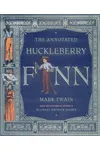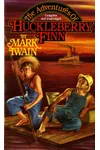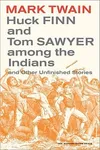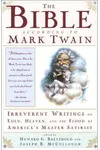Picture an American storyteller who spun tales of mischief and adventure along the Mississippi River—meet Mark Twain! Born Samuel Clemens in 1835, Twain became a literary legend with his sharp wit, unforgettable characters, and knack for capturing the heart of 19th-century America. His stories, brimming with humor and social critique, still charm readers today.
From a small-town boy to a global icon, Twain’s journey was as colorful as his tales. Let’s dive into the life, works, and lasting magic of this master storyteller.
The Making of Mark Twain
Samuel Clemens grew up in Hannibal, Missouri, a river town that inspired the settings of his greatest works. After his father’s death, young Sam left school at 12, working as a printer’s apprentice. His love for words bloomed, and by his teens, he was writing witty sketches for local papers. As a steamboat pilot on the Mississippi, he adopted the pen name 'Mark Twain,' a river term meaning 'safe to navigate.' These early adventures shaped his storytelling, infusing it with the rhythms of American life.
Mark Twain’s Unforgettable Stories
Twain’s novels are treasures of American literature, blending humor, adventure, and piercing social commentary. The Adventures of Tom Sawyer (1876) follows a mischievous boy’s escapades in a small town, capturing the joys and perils of childhood. Its companion, Adventures of Huckleberry Finn (1884), is Twain’s masterpiece—a daring tale of a runaway boy and an enslaved man, Jim, navigating freedom and morality on a raft. Critics praise its use of vernacular and unflinching look at racism.
Twain also penned The Prince and the Pauper (1881), a clever tale of mistaken identities, and A Connecticut Yankee in King Arthur’s Court (1889), a satirical time-travel romp. His style—folksy, direct, and laced with irony—broke from the formal prose of his era, making literature feel alive and accessible. Twain’s stories tackled big themes like justice, identity, and human folly, all wrapped in a grin-inducing narrative.
His essays and speeches, like 'The Awful German Language,' showcased his humor, while his travelogue The Innocents Abroad (1869) made him a bestselling author. Twain’s ability to weave truth and laughter set him apart as a literary pioneer.
Why Mark Twain Matters
Mark Twain didn’t just write stories—he shaped American identity. His use of regional dialects gave voice to everyday people, revolutionizing how literature sounded. Huckleberry Finn remains a cornerstone of American fiction, sparking debates on race and morality that resonate today. Twain’s critiques of hypocrisy and injustice, delivered with a wink, made him a moral compass for his time.
His global fame as a lecturer and writer brought American culture to the world stage. Even now, Twain’s humor and humanity inspire authors, filmmakers, and readers. His legacy lives in every storyteller who dares to speak truth with a smile.
About Mark Twain
- Born: November 30, 1835, in Florida, Missouri
- Key Works: The Adventures of Tom Sawyer, Adventures of Huckleberry Finn, The Innocents Abroad
- Died: April 21, 1910, in Redding, Connecticut
- Fun Fact: Twain was born during a visit of Halley’s Comet and predicted he’d die when it returned—he did!
Snag Adventures of Huckleberry Finn and dive into Twain’s world of wit, adventure, and heart!
















































































